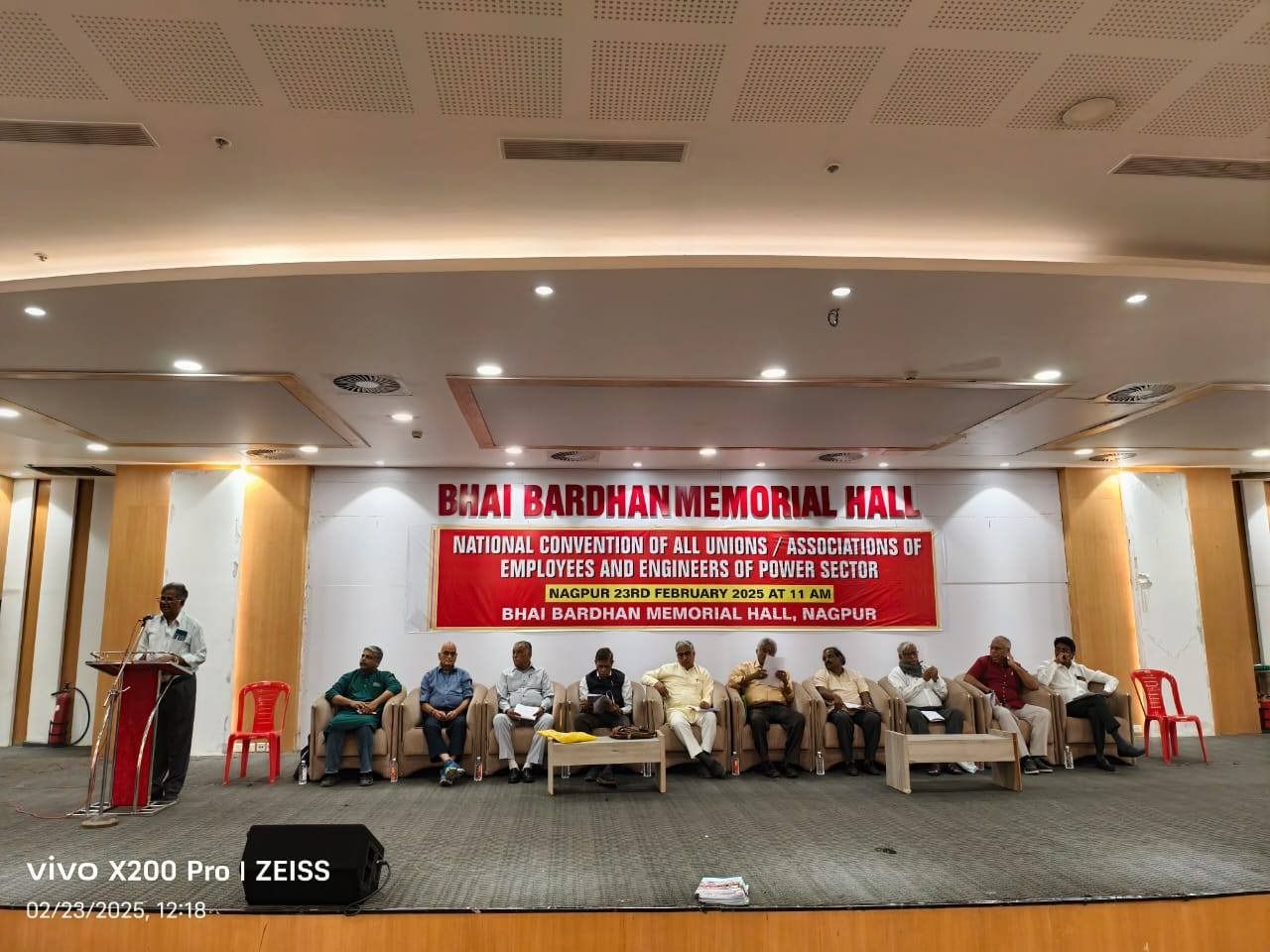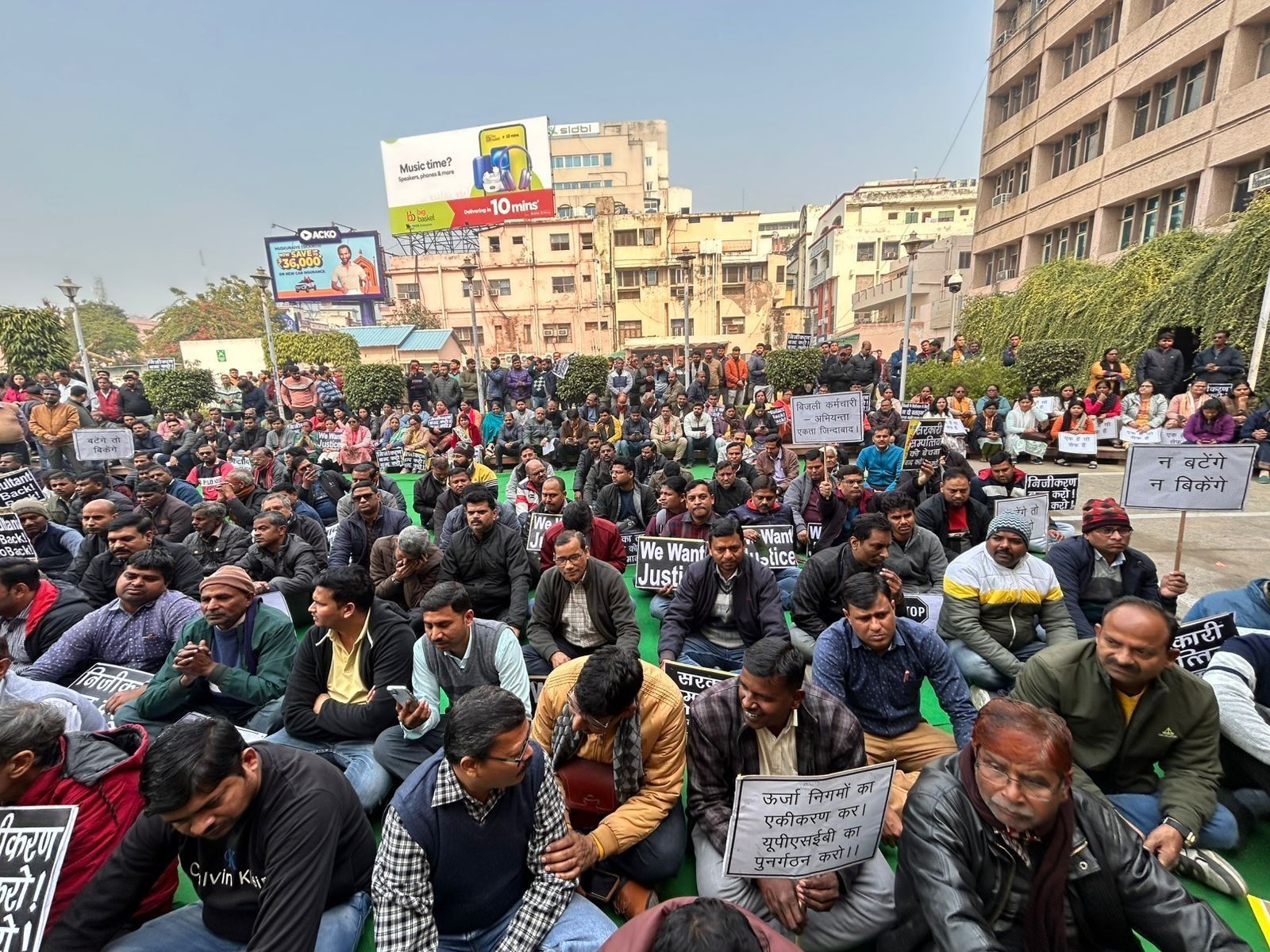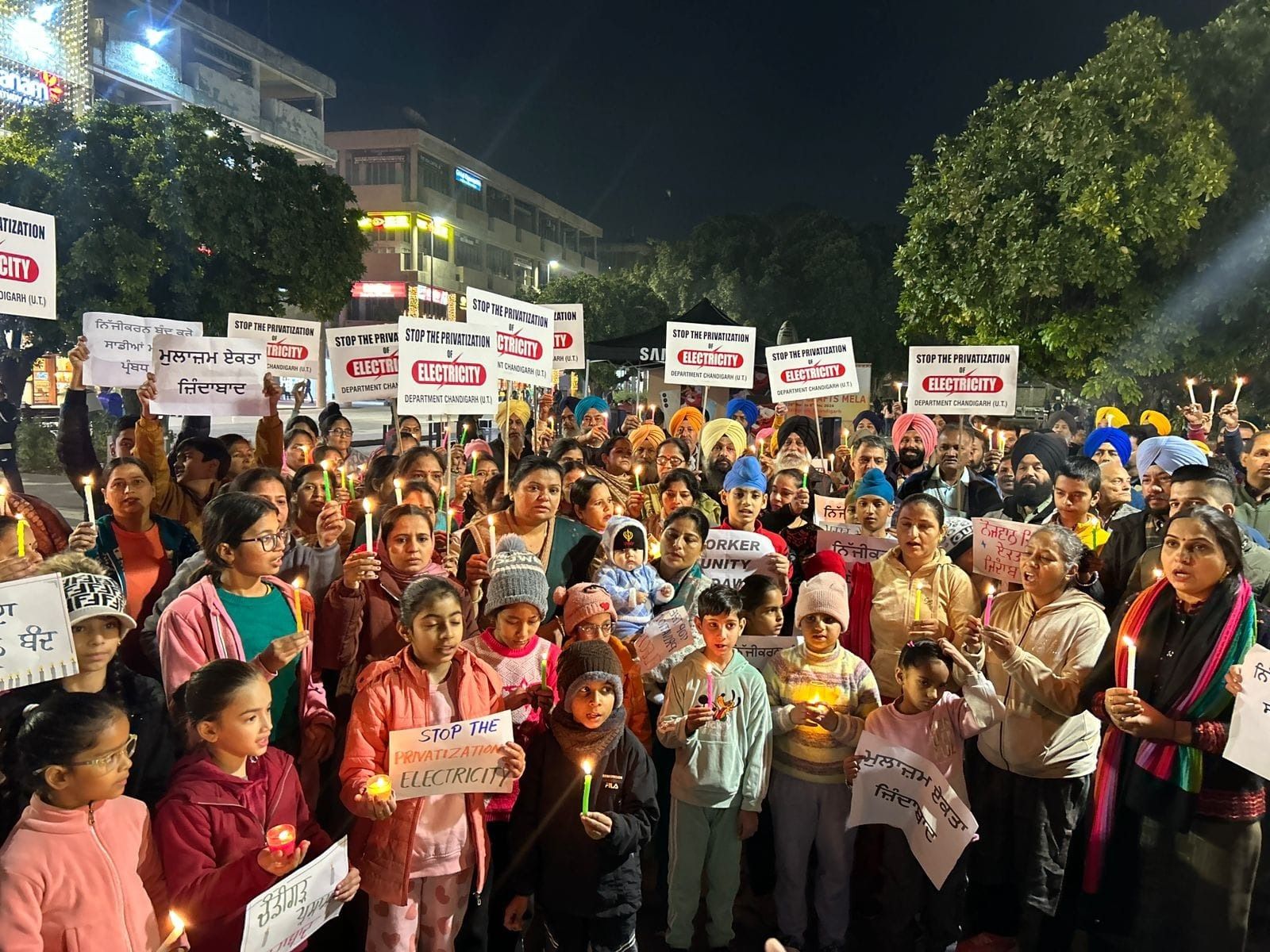Labour
Massive National Strikes in June 2025 to Protest Power Sector Privatization


Web desk
Published on Feb 24, 2025, 12:59 PM | 4 min read
Nagpur, Maharashtra – In an unprecedented move over the privatization of India’s power sector, nearly 2.7 million electricity employees and engineers are gearing up for a historic nationwide strike on June 26, 2025. The strike, announced following a national convention in Nagpur, is poised to be one of the largest sectoral protests in decades, uniting workers, trade unions, and farmers’ organizations in a fierce stand against the Union government’s privatization agenda.

National Convention organised by the National Coordination Committee of Electricity Employees and Engineers (NCCOEEE)
The National Coordination Committee of Electricity Employees and Engineers (NCCOEEE), which spearheaded the Nagpur convention, has sounded the alarm over what it calls an “existential threat” to India’s public electricity sector. The committee warns that the ongoing privatization drive, particularly in states like Uttar Pradesh, Rajasthan, and Telangana, could jeopardize energy security, undermine democratic rights, and make electricity inaccessible and unaffordable for millions of Indians.
Privatization Push Sparks Outrage
The privatization of India’s power sector has been a serious issue since the National Democratic Alliance (NDA) government began pushing for the sale of state-run Distribution Companies (DISCOMs). The recent forced privatization of Chandigarh’s profitable and efficient electricity utility has become a flashpoint, with workers accusing the government of prioritizing corporate interests over public welfare.
Now, the privatization net is widening. In Uttar Pradesh, the Purvanchal and Dakshinanchal Vidyut Vitaran Nigams are under threat, putting over 27,000 employees and engineers—along with 50,000 contract workers—at risk of losing their jobs. Similar moves are underway in other states, with regional meetings involving Delhi, Haryana, Himachal Pradesh, Jammu & Kashmir, Ladakh, Madhya Pradesh, Punjab, and Rajasthan revealing a coordinated push for privatization and market-driven reforms.

Protesting electricity workers in Uttar Pradesh
Adding fuel to the fire, the central government is fast-tracking a new draft of the Electricity Amendment Bill, which the workers and trade unions argue will further erode public control over the power sector. A group of ministers, led by the controversial Uttar Pradesh Energy Minister, is aggressively advancing these policies, drawing sharp criticism from workers and activists.
A Nationwide Movement Takes Shape
In response, the NCCOEEE has unveiled a comprehensive strategy to mobilize support for the June strike. The plan includes a series of regional meetings in March 2025, state-level conventions in April, and targeted rallies in Uttar Pradesh to resist privatization efforts. By May 2025, nationwide campaigns will aim to galvanize public opinion and build momentum for what promises to be a watershed moment in India’s labor history.
The Electricity Employees Federation of India (EEFI) has called on all power sector workers to join the movement, urging consumers to stand in solidarity. “These so-called reforms are nothing but a smokescreen for privatization,” said Sudip Dutta, National Secretary of the EEFI. “If we allow this to continue, we risk widespread de-electrification, which will have catastrophic consequences for food security, economic stability, and the basic rights of Indian citizens.”
A Fight for Energy Sovereignty
The June 26 strike is not just a labor action; it is a battle for the soul of India’s energy sector. Workers argue that privatization will hand over control of a critical public utility to private corporations, leading to higher tariffs, reduced access, and diminished accountability. Farmers’ organizations, already grappling with rising input costs, fear that privatization could make irrigation unaffordable, further crippling the agricultural sector.

Protests organised by the consumers in Chandigarh
“This is about more than jobs—it’s about the right to electricity as a fundamental public service,” said Dutta. “We are fighting to ensure that every Indian, regardless of their economic status, has access to reliable and affordable power.”
As the countdown to June 26 begins, the stakes could not be higher. With millions of workers preparing to down tools and take to the streets, the strike is set to be a defining moment in India’s ongoing struggle over privatization. For the government, the challenge will be to navigate the growing unrest while pushing forward its reform agenda. For the workers, it is a fight to preserve the public character of India’s power sector—and, they say, the future of the nation itself.









0 comments